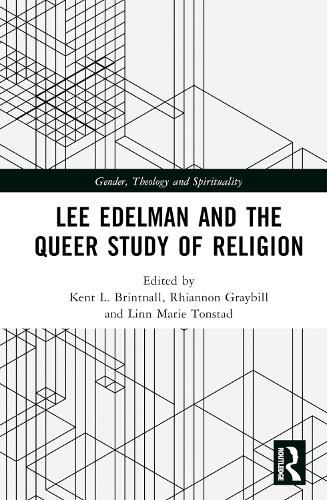Readings Newsletter
Become a Readings Member to make your shopping experience even easier.
Sign in or sign up for free!
You’re not far away from qualifying for FREE standard shipping within Australia
You’ve qualified for FREE standard shipping within Australia
The cart is loading…






This book takes the groundbreaking work of Lee Edelman in queer theory and, for the first time, demonstrates its importance and relevance to contemporary theology, biblical studies, and religious studies. It argues that despite extensive interest in Edelman's work, we have barely begun to understand the significance of Edelman's ideas both in their own right and with respect to the study of religion. Therefore, it offers fresh approaches to Edelman's work that necessarily complicate the established interpretations of his thinking. With essays by rising and established scholars, as well as a response by Edelman himself, it contends that by fully engaging Edelman, scholars of religion will have to confront negativity and its consequences in ways that will contribute to reshaping the terrain of scholarship on religion, race, sexuality, and social change. The insights provided in this book are new territory for much of the study of religion. As such, it will be of keen interest to scholars of religious studies, theology, and Biblical studies, as well as gender studies and queer, feminist, and critical race theory.
$9.00 standard shipping within Australia
FREE standard shipping within Australia for orders over $100.00
Express & International shipping calculated at checkout
This book takes the groundbreaking work of Lee Edelman in queer theory and, for the first time, demonstrates its importance and relevance to contemporary theology, biblical studies, and religious studies. It argues that despite extensive interest in Edelman's work, we have barely begun to understand the significance of Edelman's ideas both in their own right and with respect to the study of religion. Therefore, it offers fresh approaches to Edelman's work that necessarily complicate the established interpretations of his thinking. With essays by rising and established scholars, as well as a response by Edelman himself, it contends that by fully engaging Edelman, scholars of religion will have to confront negativity and its consequences in ways that will contribute to reshaping the terrain of scholarship on religion, race, sexuality, and social change. The insights provided in this book are new territory for much of the study of religion. As such, it will be of keen interest to scholars of religious studies, theology, and Biblical studies, as well as gender studies and queer, feminist, and critical race theory.